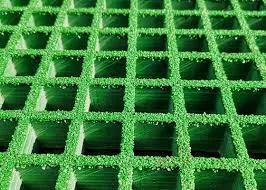
-
 Afrikaans
Afrikaans -
 Albanian
Albanian -
 Amharic
Amharic -
 Arabic
Arabic -
 Armenian
Armenian -
 Azerbaijani
Azerbaijani -
 Basque
Basque -
 Belarusian
Belarusian -
 Bengali
Bengali -
 Bosnian
Bosnian -
 Bulgarian
Bulgarian -
 Catalan
Catalan -
 Cebuano
Cebuano -
 China
China -
 China (Taiwan)
China (Taiwan) -
 Corsican
Corsican -
 Croatian
Croatian -
 Czech
Czech -
 Danish
Danish -
 Dutch
Dutch -
 English
English -
 Esperanto
Esperanto -
 Estonian
Estonian -
 Finnish
Finnish -
 French
French -
 Frisian
Frisian -
 Galician
Galician -
 Georgian
Georgian -
 German
German -
 Greek
Greek -
 Gujarati
Gujarati -
 Haitian Creole
Haitian Creole -
 hausa
hausa -
 hawaiian
hawaiian -
 Hebrew
Hebrew -
 Hindi
Hindi -
 Miao
Miao -
 Hungarian
Hungarian -
 Icelandic
Icelandic -
 igbo
igbo -
 Indonesian
Indonesian -
 irish
irish -
 Italian
Italian -
 Japanese
Japanese -
 Javanese
Javanese -
 Kannada
Kannada -
 kazakh
kazakh -
 Khmer
Khmer -
 Rwandese
Rwandese -
 Korean
Korean -
 Kurdish
Kurdish -
 Kyrgyz
Kyrgyz -
 Lao
Lao -
 Latin
Latin -
 Latvian
Latvian -
 Lithuanian
Lithuanian -
 Luxembourgish
Luxembourgish -
 Macedonian
Macedonian -
 Malgashi
Malgashi -
 Malay
Malay -
 Malayalam
Malayalam -
 Maltese
Maltese -
 Maori
Maori -
 Marathi
Marathi -
 Mongolian
Mongolian -
 Myanmar
Myanmar -
 Nepali
Nepali -
 Norwegian
Norwegian -
 Norwegian
Norwegian -
 Occitan
Occitan -
 Pashto
Pashto -
 Persian
Persian -
 Polish
Polish -
 Portuguese
Portuguese -
 Punjabi
Punjabi -
 Romanian
Romanian -
 Russian
Russian -
 Samoan
Samoan -
 Scottish Gaelic
Scottish Gaelic -
 Serbian
Serbian -
 Sesotho
Sesotho -
 Shona
Shona -
 Sindhi
Sindhi -
 Sinhala
Sinhala -
 Slovak
Slovak -
 Slovenian
Slovenian -
 Somali
Somali -
 Spanish
Spanish -
 Sundanese
Sundanese -
 Swahili
Swahili -
 Swedish
Swedish -
 Tagalog
Tagalog -
 Tajik
Tajik -
 Tamil
Tamil -
 Tatar
Tatar -
 Telugu
Telugu -
 Thai
Thai -
 Turkish
Turkish -
 Turkmen
Turkmen -
 Ukrainian
Ukrainian -
 Urdu
Urdu -
 Uighur
Uighur -
 Uzbek
Uzbek -
 Vietnamese
Vietnamese -
 Welsh
Welsh -
 Bantu
Bantu -
 Yiddish
Yiddish -
 Yoruba
Yoruba -
 Zulu
Zulu
FRP Pipes and Fittings Applications in Maritime Vessel Construction and Design
FRP Pipes and Fittings in Ship Construction
Fiber Reinforced Polymer (FRP) pipes and fittings have become increasingly prominent in the shipbuilding industry, owing to their superior properties that address the unique challenges faced by marine environments. Utilized for a variety of applications, FRP materials have revolutionized the way ships are constructed, offering advantages in durability, weight efficiency, and resistance to corrosive elements.
Historically, shipbuilders relied heavily on conventional materials such as steel and wood. While these materials have served their purposes, they also come with significant disadvantages, especially in terms of weight and susceptibility to corrosion. Steel, for instance, can corrode in salty water, leading to increased maintenance costs and reduced lifespan. In contrast, FRP, composed of a polymer matrix reinforced with fibers (such as glass or carbon), offers remarkable resistance to corrosion from seawater and various chemicals, significantly extending the operational life of marine vessels.
One of the key benefits of using FRP pipes and fittings is their lightweight nature. FRP materials can be up to 75% lighter than traditional steel or even plastic alternatives. This reduction in weight is crucial in ship construction, where every kilogram counts in terms of fuel efficiency and payload capacity. Lighter vessels are not only more fuel-efficient but also allow for increased cargo Space and a higher overall performance at sea.
Furthermore, FRP pipes and fittings exhibit exceptional mechanical properties. They provide excellent strength-to-weight ratios, allowing them to withstand high pressures and mechanical loads which are common in marine applications. This quality ensures that the components can retain their integrity under demanding conditions, thus ensuring the safety and reliability of ship operations.
frp pipes and fittings utilized in ship construction

Another significant advantage is the ease of installation associated with FRP systems. These materials can be fabricated into various shapes and sizes, allowing for tailored designs that meet specific needs in ship construction. The lightweight nature of FRP also makes handling and installation more convenient compared to heavier materials. This factor not only speeds up the construction process but also reduces labor costs associated with installation.
In addition to mechanical properties, the adaptability of FRP allows for innovative designs that can optimize the functional aspects of ships. Their resistance to impacts and fatigue means they can be employed in critical applications, such as piping systems for water supply, wastewater treatment, fuel handling, and cooling systems. These applications are vital for the operational efficiency of vessels, contributing to overall mission success.
Moreover, the design flexibility offered by FRP materials allows engineers to create complex shapes and configurations that might be challenging or impossible to achieve with traditional materials. This design freedom can lead to enhanced efficiency in routing, minimizing the need for additional fittings and connections, which can often be points of failure in a system.
Sustainability is another essential aspect driving the adoption of FRP pipes and fittings in ship construction. As industries worldwide strive to reduce their carbon footprints, the longevity and reduced maintenance requirements of FRP systems align well with these goals. The low impact on marine ecosystems, due to their resistance to chemical leaching, presents FRP as an environmentally friendly choice for shipbuilders.
In conclusion, the utilization of FRP pipes and fittings in ship construction represents a significant advancement over traditional materials. With their lightweight nature, high corrosion resistance, excellent mechanical properties, and adaptability in design, FRP materials are paving the way for more efficient, durable, and cost-effective ships. As the marine industry continues to evolve, the integration of innovative materials like FRP will play a crucial role in shaping the future of shipbuilding, promoting sustainability, and enhancing performance on the high seas.









